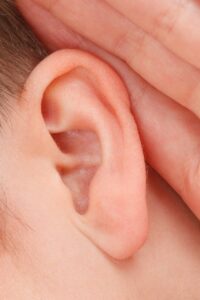
When E.F. Hutton talks, people listen
The Addiction Joy of Eavesdropping
How many of you can remember when the phone was a wooden box that hung on the wall, with a tube to speak into, a crank on the side to ring up the operator, and a lonely old lady who listened to all the calls on the party line? I was kindergarten age when our phone was modernized. But the joy of listening secretly to others’ conversations will probably never end.
We writers are instructed that eavesdropping is essential to learning how to write dialogue, an interchange that is often so fragmented and illogical as to make our heads shake and our brains wonder how people ever really communicate. We are told we need to “research” the local dialect by listening. And of course, what better way to pick up juicy tidbits that might help build a plot than to open our ears to those sitting beside us in public. The truth is stranger than fiction. These are all great excuses for what we would love to do anyway.
The psychology of eavesdropping
An interesting article in WIRED, The Science of Eavesdropping, discusses an interesting paradox – it’s harder to NOT listen to a conversation where the speaker is on a phone, or we’re hearing only one side of the conversation, than it is to NOT listen when both speakers are physically present. “Although the phone conversation contains much less information, we’re much more curious about what’s being said.”
I would add that it is still interesting, depending on the topic, when both sides of the conversation are audible and the speakers are not aware that someone else is listening.
Why do people eavesdrop?
Writer, Maddie Cohen, lists three reasons:
- “Eavesdropping Is Primal. We’re all doing our best to go after the things we want. To this end, being hyperaware of what’s going on with other people can help us stay vigilant and protect the things we have.”
- “It’s live entertainment!”
- “I’m a full-time writer, so it shouldn’t come as a surprise that I find eavesdropping pretty exhilarating.” In other words, if we’re writers, it’s in our DNA. Good enough for me.
So, let’s discuss this juicy topic:
- Where is your favorite place to eavesdrop?
- What is your favorite technique for listening in?
- What is the juiciest tidbit you have ever gleaned by eavesdropping?
- What electronic device for eavesdropping would you like to own (for “research” of course) and how would you deploy it? Invent one, if you wish.
